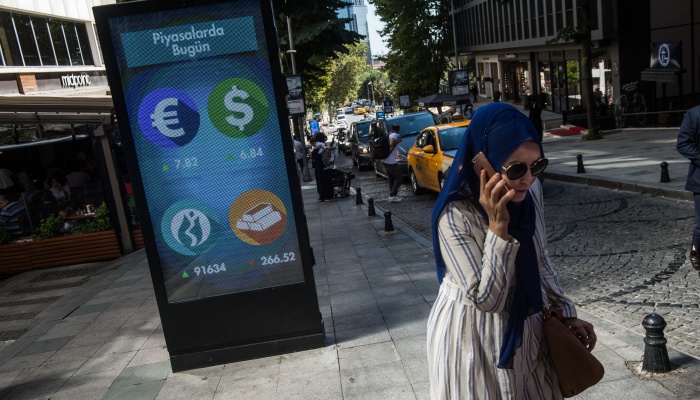Turkey remains susceptible to external and domestic risks, the International Monetary Fund IMF) said on Monday, while strong, sustainable growth would be challenging without further reforms by the government, Reuters reported.
“The current calm (in Turkish financial markets) appears fragile. Reserves remain low, and private sector FX debt and external financing needs high,” the IMF said in a statement after an ‘Article IV’ visit to Turkey by its staff.
The main policy challenge is to move from a short-run growth focus to securing stronger and more resilient growth over the medium term.
Turkey’s economy has grown by an average of more than 5 percent annually over the last 15 year, but inflation and interest rates soared after the lira lost 30 percent of its value last year and domestic demand fell sharply, tipping the economy into recession.
Turkey’s economy contracted 1.5 percent in the second quarter, the third straight quarterly year-on-year contraction, but leading economic indications have shown signs of recovery with reduced lira volatility and slowing inflation.
The IMF said further steps to clean up bank and corporate balance sheets would support financial stability and stronger and more resilient growth over the medium term.
Turkey’s banking watchdog told banks to write off 46 billion lira of loans by the end of the year and set aside loss reserves, in a move aimed mostly at the hard-hit energy and construction sectors.
The IMF also said efforts to expand lending should be limited while ensuring credit is provided to viable borrowers. It added that Turkey should revisit recent changes to reserve requirements made to incentivize private bank lending.
In a separate statement, the IMF said it met with representatives from the private sector, political parties and think tanks to obtain a broader view of economic developments in Turkey.
The Turkish Finance Ministry criticized the IMF delegation’s meetings, which it said took place without notice, and said it found it inappropriate for the IMF to conduct other meetings in Turkey without knowledge of the ministry.

